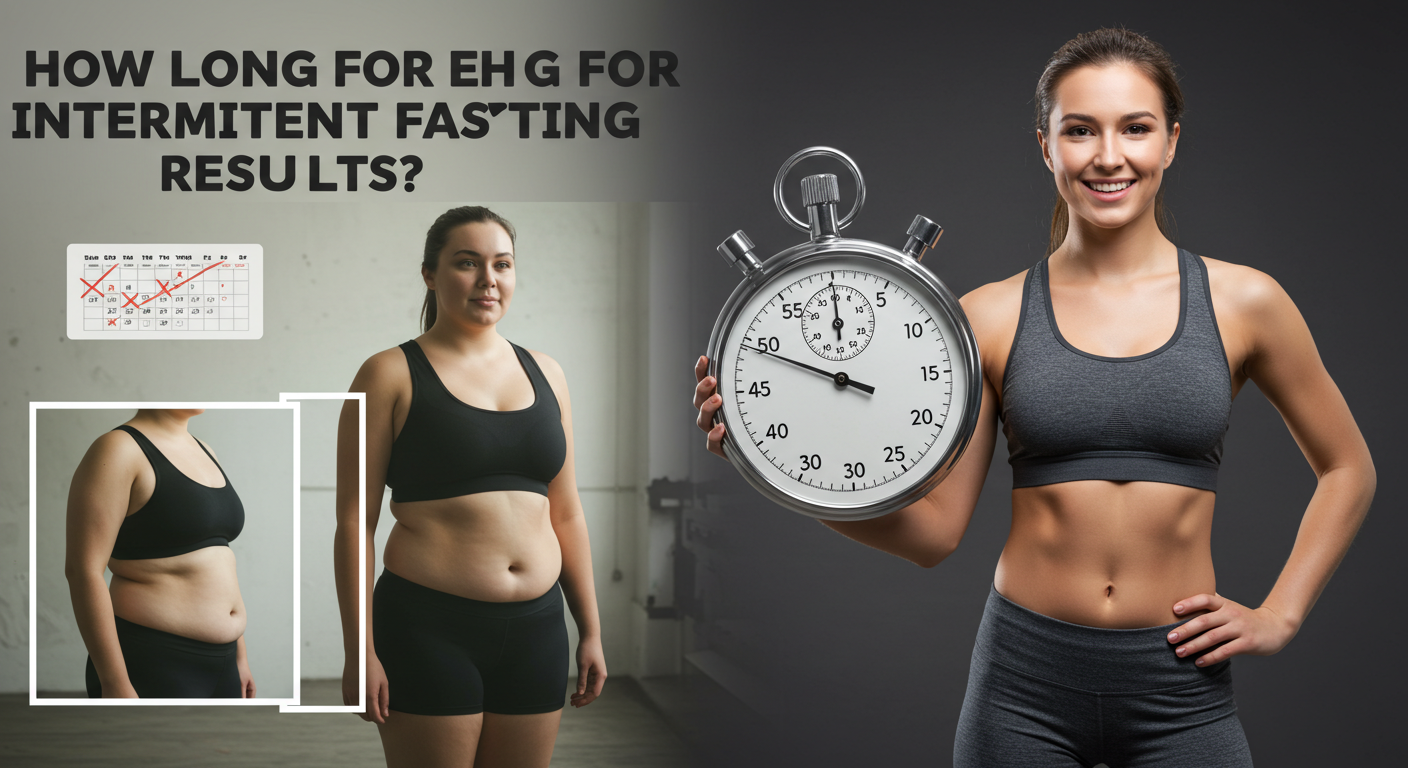Now Reading: Intermittent Fasting: How Intermittent Fasting can help Weight Loss
-
01
Intermittent Fasting: How Intermittent Fasting can help Weight Loss
Intermittent Fasting: How Intermittent Fasting can help Weight Loss

Intermittent fasting (IF) has taken the health and fitness world by storm, and for good reason. IF is a flexible, science-based way to lose weight that doesn’t leave you hungry or disappointed like tight diets do. But how does it work? How long will it take to see results? And most importantly, how do you start intermittent fasting in a way that works for you?
This complete guide will address all of your questions, from how much weight you can lose by fasting to the optimal intermittent fasting regimen for people who are new to it. This essay will help you comprehend IF in a straightforward, practical way, whether you’re a busy professional, a stay-at-home parent, or someone who’s tried every diet and failed.
What Is Intermittent Fasting?
Intermittent fasting is not a diet; it is a way of eating. It doesn’t care about what you eat; it cares about when you eat. When you eat and then fast, your body switches from burning glucose (sugar) to burning stored fat for energy.
Why Can Intermittent Fasting Help People Lose Weight?

-
Lowers Insulin Levels – When you fast, your body makes less insulin, which lets fat cells release stored energy.
-
Increases Fat Burning — When you don’t eat, your body uses fat stores for energy.
-
Boosts Human Growth Hormone (HGH) – Fasting can boost HGH by up to 5 times, which helps keep muscle while decreasing fat.
-
Boosts Metabolism — Fasting for a short time may speed up your metabolism by 3–14%.
-
Reduces Cravings – IF helps manage hunger hormones by keeping blood sugar levels stable.
Intermittent Fasting Schedules: Which One Is Best for You?
There isn’t a one method that works for everyone when it comes to IF. The optimum timetable for you will depend on your lifestyle, how much weight you want to lose, and how much experience you have. Here are the most common intermittent fasting schedules:
1. 16:8 Method (Best for Beginners)
-
Fast for 16 hours, eat inside an 8-hour window.
-
For example, skip breakfast, have lunch at 12 PM, and finish dinner by 8 PM.
-
Best for: People who desire an easy, long-lasting way to start intermittent fasting.
2. 5:2 Method (Flexible Fasting)
-
For five days, eat regularly, and on two days that aren’t back-to-back, limit yourself to 500–600 calories.
-
For example, eat regularly from Monday to Friday and fast (or eat very little) on Tuesday and Thursday.
-
Best for: People who would rather fast once in a while than have to follow stringent rules every day.
3. Eat-Stop-Eat (Advanced Fasting)
-
Fast for 24 hours once or twice a week.
-
For example, eat dinner at 7 PM and don’t eat again until 7 PM the next day.
-
Best for: People who have fasted before and want to lose weight quickly.
4. Fasting Every Other Day
-
You can either do a full fast or limit your calories to 500.
-
Best for: People who are very disciplined and want to lose weight quickly.
5. The Warrior Diet (One Meal a Day – OMAD)
-
Don’t eat anything for 20 hours, then have a big dinner at night.
-
Best for: People who like substantial, filling meals instead of a lot of small ones.
For novices, the 16:8 approach is the easiest way to start intermittent fasting.
How Long Does It Take to See Results from Intermittent Fasting?

One of the most asked questions is:
“How long does it take to lose weight when you fast on and off?”
The answer depends on:
-
Your beginning weight (those who are heavier may lose weight faster at first).
-
Your fasting schedule (the longer you fast, the faster you lose fat).
-
What you consume during eating windows (junk food slows progress).
-
Exercise habits (moving around speeds up results).
How long it usually takes to lose weight with Intermittent Fasting?
If you follow the schedule and eat healthy foods, most people will start to lose weight in around 2 to 4 weeks of intermittent fasting. The exact time can be different for each person based on things like how much they eat, and how active they are. A safe way to lose weight is to lose 0.5 to 1 kilogram (1 to 2 pounds) a week. It takes time and workout to get permanent benefits, so be patient and stick with, you will definitely get results.
Note: Some people notice changes in days, while others take weeks. Being consistent is important!
How to Start Intermittent Fasting: A Step-by-Step Guide
If you want to know how to start intermittent fasting, do these things:
Step 1: Choose Your Fasting Time
-
Beginners: Start with 12-hour fasts (8 PM to 8 AM), then work your way up to 14 to 16 hours.
-
For people who are more advanced, the 16:8 approach (fast for 16 hours and eat for 8 hours) works.
-
For advanced users, try 18:6, 20:4, or OMAD (one meal a day).
Step 2: Stay Hydrated (Key to Fighting Hunger)
-
Drink water, black coffee, herbal tea, or drinks with electrolytes.
-
Don’t drink sugary drinks or use artificial sweeteners (they can raise insulin levels).
Step 3: Eat Meals That Are Full of Nutrients
-
Focus on: Protein (chicken, fish, tofu), healthy fats (avocado, nuts), and fiber (veggies, whole grains).
-
Stay away from: processed foods, sugary snacks, and too many carbs.
Step 4: Control Your Hunger and Energy Levels
It could be hard at first because your body requires time to become used to it.
If you feel weak or dizzy, try bone broth or a bit of salt to get your electrolytes back up.
Step 5: Keep track of your progress and make changes
-
Weigh yourself once a week, not every day.
-
Measure your body (waist, hips, etc.).
-
Change how long you fast if you need to.
How to Lose Weight Quickly with Intermittent Fasting?
Want to lose weight even faster? These are some things you can do:
✅ Combine IF with Low-Carb/Keto – Speeds up fat-burning.
✅ Exercise in a Fasted State – Morning walks or light exercises increase outcomes.
✅ Get enough sleep—not getting enough sleep makes you hungrier.
✅ Don’t eat late at night—eating supper earlier helps you lose weight.
✅ Stay consistent—results build up over time.
Things You Shouldn’t Do
-
Overeating during feeding windows.
-
Ignoring protein intake.
-
Not drinking enough water– Dehydration mimics hunger.
-
Giving up too soon – It takes 2-4 weeks to adjust.
Common Questions About Intermittent Fasting
-
Is it okay to drink coffee when fasting?
Yes! Black coffee without sugar or cream is good and could help you feel less hungry. -
Will I Lose Muscle?
Not if you eat enough protein and perform some modest strength training. -
What Should I Do If I Feel Lightheaded?
Try taking electrolytes like salt and magnesium, or cut down on the time you fast. -
Is it okay for women to do intermittent fasting?
Yes, but some people may prefer shorter fasts (14:10) because their hormones are sensitive. -
How Long Should I Do Intermittent Fasting?
It is safe for a long time! A lot of people use IF for years to keep their weight off.
Last Thoughts: Is Intermittent Fasting Right for You?
Intermittent fasting isn’t a magic pill, but it’s one of the best and most long-lasting ways to reduce weight without going on a strict diet. The most important thing is to:
-
Start slow (take your time getting used to fasting).
-
Stay consistent (it takes time to see benefits).
-
Pay attention to your body (make changes as needed).
If you’ve had trouble with diets in the past, IF might be the answer you’ve been seeking for.
Are You Ready to Give It a Shot?
Choose a schedule, be patient, and notice how your body changes.
Have you ever tried fasting for short periods of time? Tell us about your experience in the comments!




























